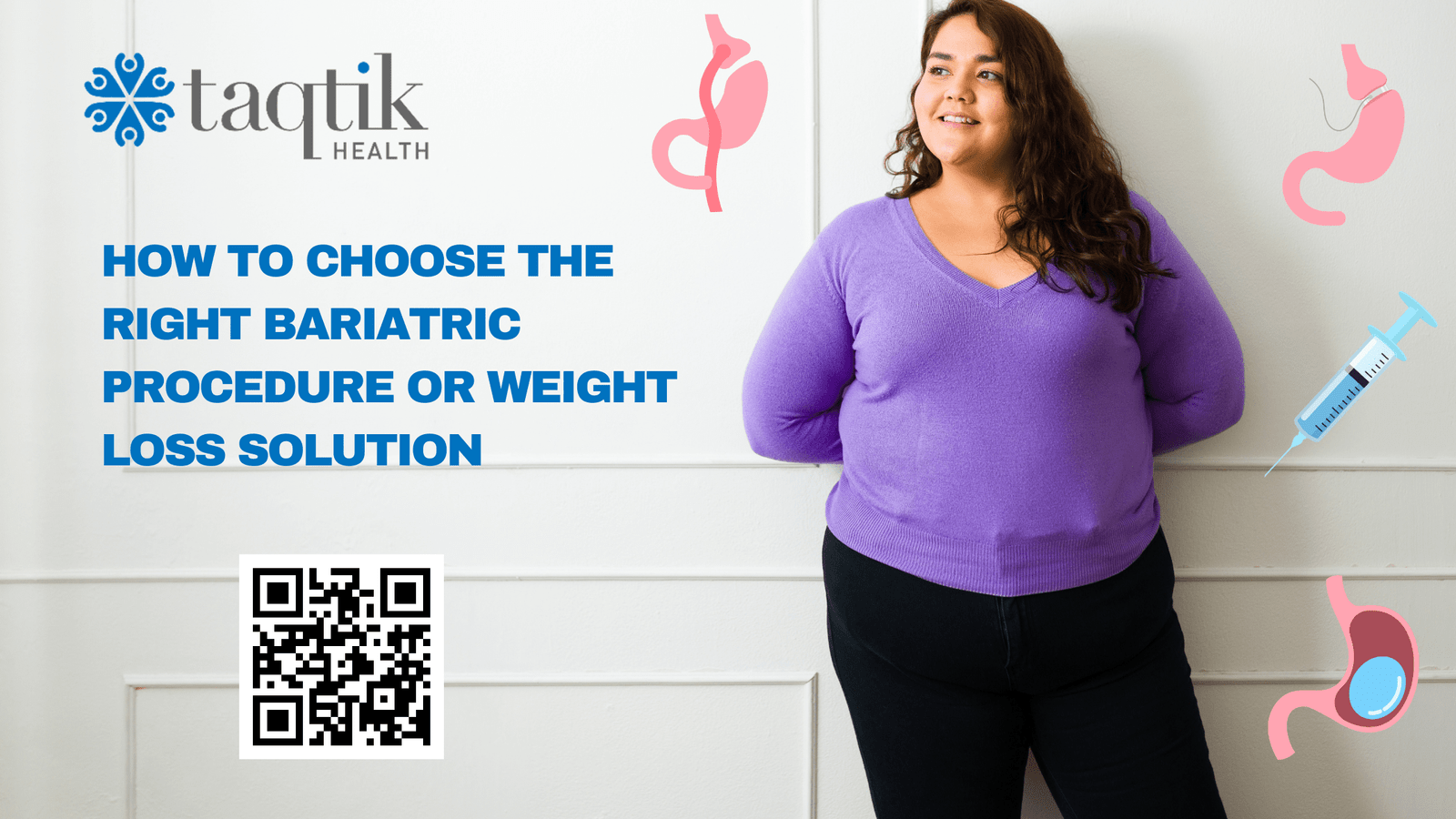Which Patients Should be Offered Bariatric surgery?
Which patients should be offered bariatric surgery?
The first-line management of obesity should include a multi-disciplinary evaluation with nutritional and medical counseling, according to the patient’s need, in collaboration with an experienced consultant and surgical team. Many of our global surgeons suggest that adjustable gastric banding not be offered due to unacceptable complications and long-term failure. Some bariatric specialists recommend that single-anastomosis gastric bypass not be routinely offered, due to long-term complications in comparison with standard Roux-en-Y gastric bypass (Level 4, Grade D).13 • Different surgical options exist (e.g., sleeve gastrectomy, gastric bypass, and duodenal switch), with different levels of effectiveness. We recommend patients considering bariatric surgery schedule a teleconsultation and have an extensive discussion with the surgical team before deciding which surgical option seems to be the best for them. All surgeries have some adverse effects and potential risks and require lifelong management to follow-up, mineral and vitamin supplementation, and behavioral changes. well as behavioral modifications and increased physical activity. Post-surgery we highly recommend our remote monitoring service to maintain good vitals that can be measured when returning home.
Ideal Bariatric Candidates
Patients with a BMI between 35 and 40 kg/m² with at least one major obesity-related disease (e.g., T2DM, obesity-related cardiac disease, sleep apnea), or patients with a BMI ≥ 40 kg/m² with or without associated diseases, are potential surgical candidates. In addition, bariatric surgery may be offered to patients with obesity (BMI ≥ 30 kg/m²) and significant obesity-associated disease(s), when psychological and behavioral interventions and medical management are insufficient to achieve optimal weight loss and control of comorbidities.
All potential bariatric patients are carefully evaluated by a bariatric surgeon once a second opinion or firmquote is completed. Following consultation, your bariatric surgeon may educate you regarding the risks, benefits, and alternatives to bariatric surgery. Patients should also understand the need for lifelong medical surveillance to prevent and correct potential long-term nutritional deficiencies after surgery. Contraindications for bariatric surgery include recent substance abuse (alcohol, drugs), non-stable psychiatric conditions (i.e., changes in psychiatric medications in the last six months), a diagnosis of cancer, or an expected life expectancy of fewer than five years.
Even though an age limit of 60 years is considered in the NIH recommendations, multiple studies have assessed the risks and benefits of bariatric surgery in the elderly. These are summarized in a systematic review that identified 26 articles encompassing 8149 patients.18 Pooled 30-day mortality was 0.01% and the overall complication rate was 14.7%. At the one-year follow-up, mean excess weight loss was 53.8%, diabetes resolution was 54.5%, hypertension resolution was 42.5% and lipid disorder resolution was 41.2%. The authors conclude that outcomes and complication rates of bariatric surgery in patients older than 60 years are comparable to those in a younger population, independent of the type of procedure performed.
Patients should not be denied bariatric surgery because of their age alone.
Next Steps
If you are considering bariatric surgery and would like to arrange a teleconsultation, or request a quote we would be pleased to support you with this and help you on your path to health and wellness. You can also review bariatric price guides here.
Remote Patient Monitoring (RPM): How Taqtik Health Helps Patients and Providers Stay Connected
Remote Patient Monitoring (RPM) is changing how healthcare providers support patients between visits. By using secure digital tools, RPM allows care teams to monitor patient progress remotely, improve engagement, and reduce administrative workload. Taqtik Health offers a modern Remote Patient Monitoring platform designed to support healthcare programs with simple onboarding, clear progress tracking, and secure...Continue reading→
Taqtik Health RPM: Your Partner in Post-Bariatric Surgery Success
At Taqtik Health, we understand that bariatric surgery is a powerful step toward a healthier, more fulfilling life. But we also know that the journey doesn’t end in the operating room. The real challenge and the real transformation happens in the months and years after your procedure. That’s why we created Taqtik Health Remote Patient...Continue reading→
Post-Bariatric and GLP-1 Post-Care to Maximize Results
Post-Bariatric and GLP-1 Post-Care to Maximize Results | Taqtik Health Introduction Undergoing bariatric surgery or starting GLP-1 (glucagon-like peptide-1) agonist treatments like semaglutide (Ozempic, Wegovy) or tirzepatide (Mounjaro, Zepbound) is a major step toward long-term weight loss and improved metabolic health. But these treatments are only part of the journey. What you do after surgery...Continue reading→
Remote Patient Monitoring for Obesity: A Smarter Way to Support Surgical and Non-Surgical Patients
Losing weight and improving your health is a personal journey—and it doesn’t always require surgery. Whether you're preparing for bariatric surgery, recovering from it, or trying to manage your weight and health without surgery, one thing remains constant: support matters. At Taqtik Health, we believe long-term success comes from daily progress, consistent accountability, and expert...Continue reading→
Bariatric Center J.L. Prado in Tijuana, Mexico: Your Destination for Advanced Weight Loss Surgery
Bariatric surgery has become a life-changing solution for individuals struggling with obesity and its related health complications. In recent years, Tijuana, Mexico, has emerged as a leading destination for affordable and high-quality bariatric procedures. One of the most trusted names in this field is Bariatric Center J.L. Prado, where a team of skilled surgeons, cutting-edge...Continue reading→
Transform Your Life with Our Bariatric Surgery Promotion in Tijuana Mexico
Transform Your Life with Bariatric Surgery at J.L. Prado Surgical Center in Tijuana, Mexico, with Dr. Fredy Lopez Are you ready to take control of your health and achieve long-term weight loss? Taqtik Health is excited to offer a special promotion for bariatric surgery at J.L. Prado Surgical Center with the renowned Dr. Fredy Lopez,...Continue reading→
Bariatric Surgery Case Study: Kael Sangnam
Background: Kael Sangnam, a 37-year-old with a BMI of 34.7, had been struggling with several health issues, including sleep apnea, shortness of breath, and persistent back pain. Despite various attempts to manage her weight, these health conditions continued to affect her quality of life. Realizing that these conditions were closely linked to her weight, Kael...Continue reading→
How to Choose the Right Bariatric Procedure or Weight Loss Solution
Choosing the right weight loss solution is a deeply personal decision that depends on various factors, including your health, lifestyle, and goals. At Taqtik Health, we understand the complexities involved in making this choice and aim to provide you with comprehensive information to help you make an informed decision. This guide will explore the different...Continue reading→
Transformative Journeys with Taqtik Health: Sarah and Miguel’s Stories of Bariatric Surgery and Total Body Makeover
Introduction The decision to transform one's body and regain health is a profound and personal journey. For many individuals, bariatric surgery is a crucial first step towards achieving a healthier lifestyle. However, the journey doesn't end there. In this blog, we share the inspiring stories of Sarah and Miguel, who chose Taqtik Health to assist...Continue reading→
How to Choose Your Ideal Destination for Bariatric Surgery: Cost Considerations and Factors
Welcome to Taqtik Health, where we pride ourselves on helping you make well-informed healthcare decisions. Bariatric surgery is a life-changing procedure, and choosing the right destination for your surgery is crucial for a multitude of reasons. To make your decision easier, we've put together this comprehensive guide featuring top medical tourism destinations for bariatric surgery:...Continue reading→












